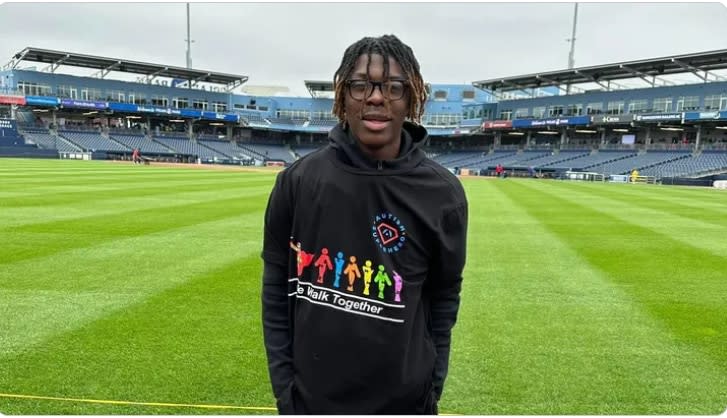‘One Chip Challenge’ maker pulls products from store shelves following death of Worcester teen
The maker of the “One Chip Challenge” announced Thursday that it has pulled its products from store shelves, just days after a teenager from Worcester died suddenly from what his family described as complications from the popular social media challenge.
Harris Wolobah, of Worcester, recently passed away after taking part in the “One Chip Challenge,” which involves eating an extremely spicy chip made from some of the hottest peppers in the world, according to his family.
Wolobah ate an extremely spicy chip made from a very hot pepper and sold by Paqui LLC.
In a statement posted on its website, Paqui said, “The Paqui ‘One Chip Challenge’ is intended for adults only, with clear and prominent labeling highlighting the chip is not for children or anyone sensitive to spicy foods or who has food allergies, is pregnant or has underlying health conditions. We have seen an increase in teens and other individuals not heeding these warnings. As a result, while the product continues to adhere to food safety standards, out of an abundance of caution, we are actively working with our retailers to remove the product from shelves.”
Wolobah visited the nurse’s office at Doherty Memorial High School on Friday. Wolobah later passed away in his home on Rustic Drive in front of Worcester police officers and paramedics.

Did ingestion of that chip lead to Wolobah’s death? That remains under investigation, but Worcester District Attorney Joseph D. Early said Wednesday that he doesn’t want a similar situation unfolding on his watch.
One local toxicologist, Dr. Peter Chai, an Emergency Services physician at Brigham and Women’s Hospital, said it’s possible to get a toxic dose of the ingredient that gives hot peppers their heat: capsaicin.
The issue is ingesting enough of the capsaicin to achieve a lethal level. And while the hotter the pepper, the more capsaicin it contains -- humans would still have to eat an unreasonable amount of peppers to get poisoned.

Chai said it doesn’t sound like an allergic reaction to capsaicin, as that would have happened more quickly. But he’s not discounting a possible poisoning.
Chai said one challenge facing the medical examiner in determining the cause of death is getting an accurate blood level of capsaicin -- as it disappears rather quickly.
Autopsy results are still pending in Wolobah’s death.
Paqui is also offering refunds on its single-serve products. For refunds, consumers can call 1-866-528-6848.
This is a developing story. Check back for updates as more information becomes available.
Download the FREE Boston 25 News app for breaking news alerts.
Follow Boston 25 News on Facebook and Twitter. | Watch Boston 25 News NOW

